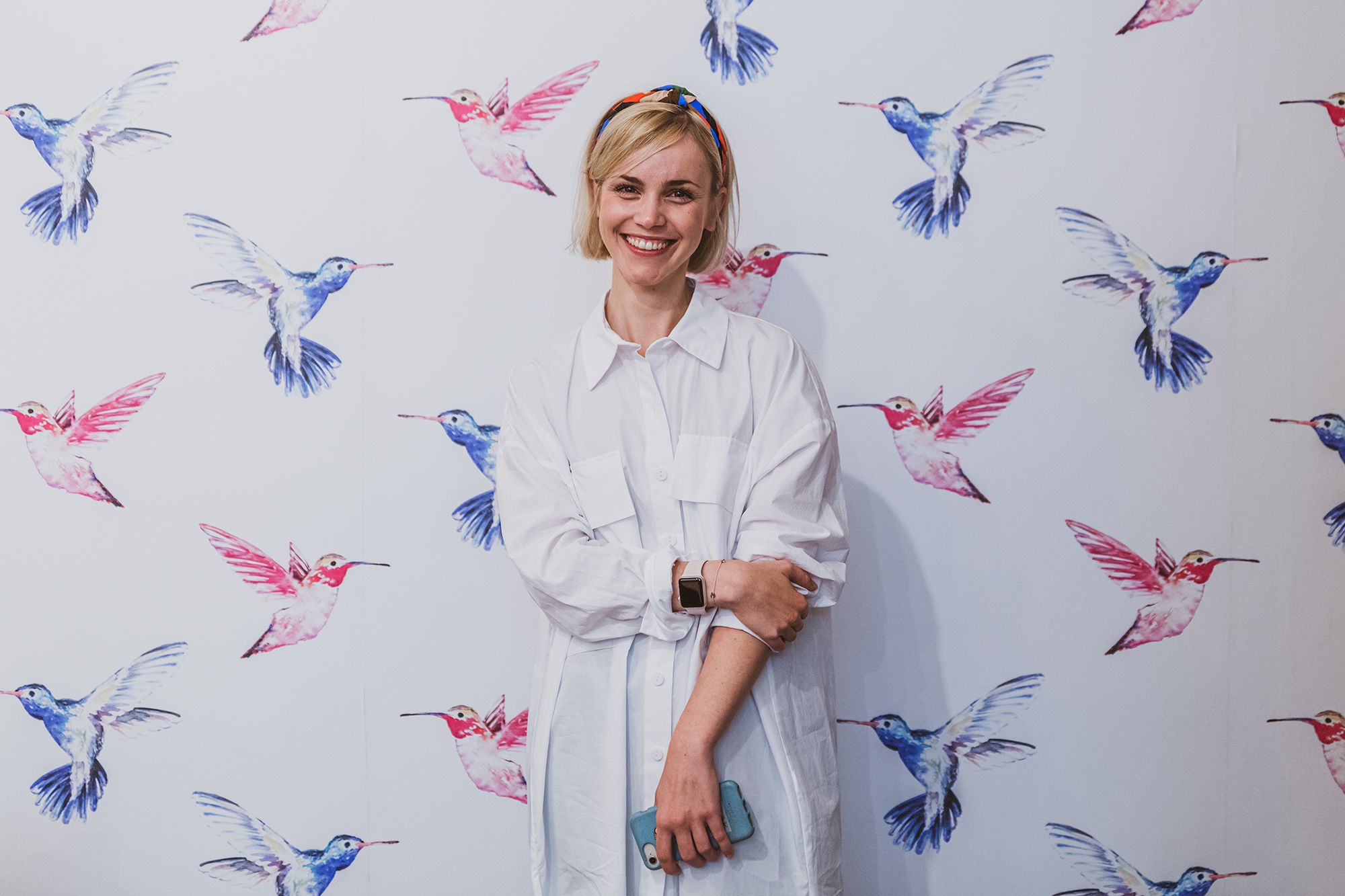In the final episode of our series launched in late October last year, you can meet the economist whose career as a confectioner started with a well-made chocolate truffle prepared as a gift to a co-worker, as well as the Hungarian princess of macarons, who started her adventure by leaving the advertising sector behind, without having a plan B. And we’ll also tell you about the guys who brought a new, fresh color to the Hungarian catering scene: thanks to them, the age of eating bland pastries and boring ham rolls at exhibition openings and team-building workshops are over. The joint campaign of Piqniq Budapest and Mastercard.
Kinga Szász – owner, Chouchou
“I improve myself professionally by walking in the world with my eyes open: I talk to people, I ask questions if I encounter a problem or if I don’t know something, I look it up, and of course I turn to books and the internet for inspiration.”
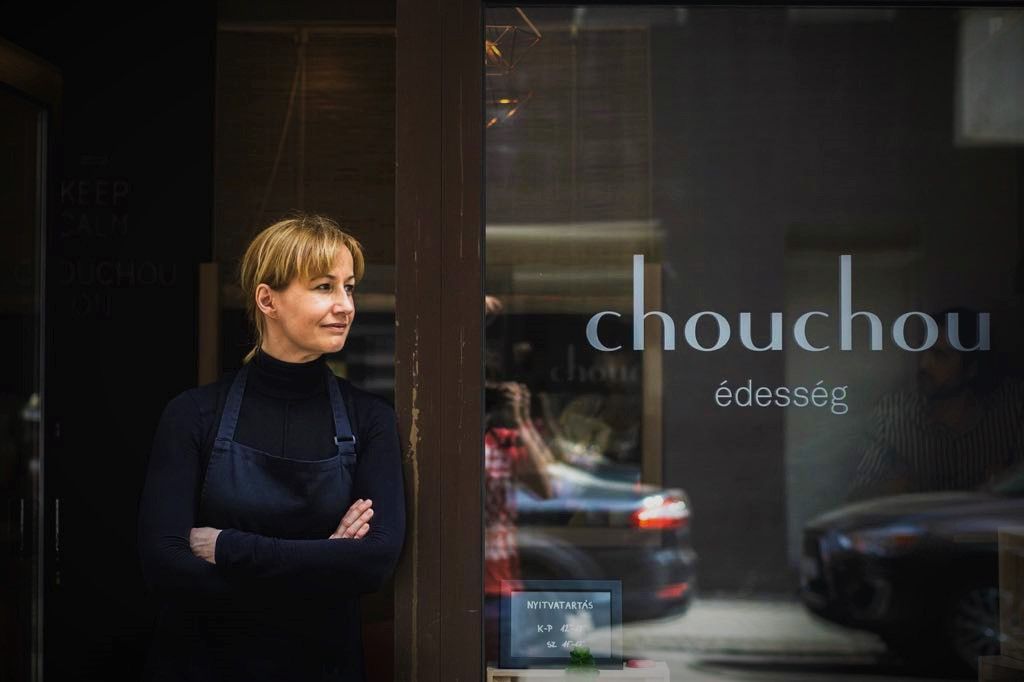
The fans of French desserts must have discovered Chouchou pastry shop operating in Hegedűs Gyula utca, Budapest, by now. Originally an economist, Kinga Szász first experimented with chocolate out of pure curiosity: she made truffles to one of her co-workers as a gift, and the small dessert enjoyed so much popularity amongst the colleagues that more and more people said they wanted to have some, too. At the time, she only improved herself in an autodidact manner in her kitchen, later on, however, she completed pastry school, and then further deepened her knowledge in Germany and later on in Zazzi confectionary.
She opened the doors of her own tiny pastry and chocolate workshop in 2017 to the audience of Budapest’s Újlipótváros. Since then, many Chouchou treats have become the favorites of guests: including, for example, the raspberry-chocolate tarte, which grew into a true classic over the years. In Chouchou’s counter, various plate desserts, tartes, pralines, madeleines await those with a sweet tooth, but one can also choose spectacular, locally-made bonbons. To chocolate fans with a capital F, we recommend the caramel chocolate bar, spiced up with capers and pecans. Temporarily, they are open on Fridays and Saturdays with shortened working hours, but you can also order pastries and cakes via telephone or via their online store, or may request home delivery through the Édes Város platform.
Dóri Szalai – owner, Chez Dodo
“We stand behind our brand: we are always in the shop, and if either of our guests have a question, we are happy to answer it. Macaron making is no secret either.”
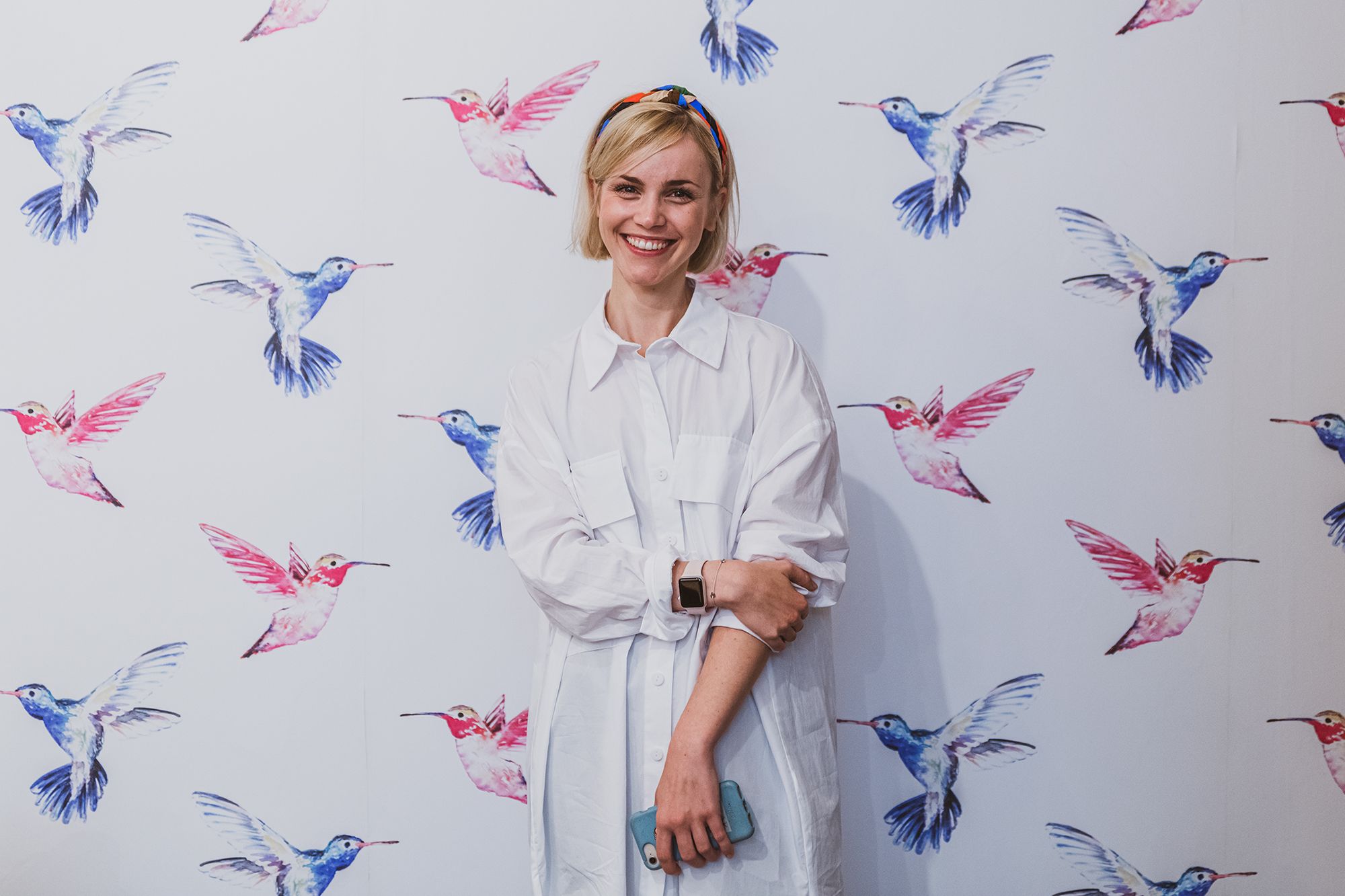
Dóri Szalai did not have a plan B when she started her own gastronomy business. She built her brand with conscious and hard work, and by now, Chez Dodo has become an inescapable concept when it comes to macarons. The tiny French dessert is only a few bites, but those who have ever got a taste of the macarons available in Chez Dodo’s counter with various flavors know exactly that it is worth coming here. Dóri Szalai left the advertising sector behind to bring these tiny sweets requiring a lot of attention to perfection—her expertise does not only include preparing these desserts, as the brand also needs a well-thought-out strategy so that it can develop and grow.
The macaron manufactory operating right next to St Stephen’s Basilica always offers some kind of novelty: the last time, for example, they made cashew-blueberry and cherry-pistachio macarons for Valentine’s Day, but their “regular” selection never disappoints either. One can also find canelés made based on an original Bordeaux recipe, fruity madeleines and pistachio-raspberry Paris-Brest, and of course, it’s all completed by the queen of macarons, the likewise extraordinary ispahan with rose-lichi ganache and raspberry pieces. On top, all this takes place right in front of our eyes: trade secrets aren’t really a secret here, as while they package the chosen dessert, we can see how the dough emerging from the pastry bag finds its place in the form of perfect discs on the baking paper and turns into macarons.
Gergő Prauda and Gergő Takács – founders, Mártogatós
“Our goal is to create a new employment standard in the hospitality sector, in which we offer maximum trust and appreciation to the worker.”
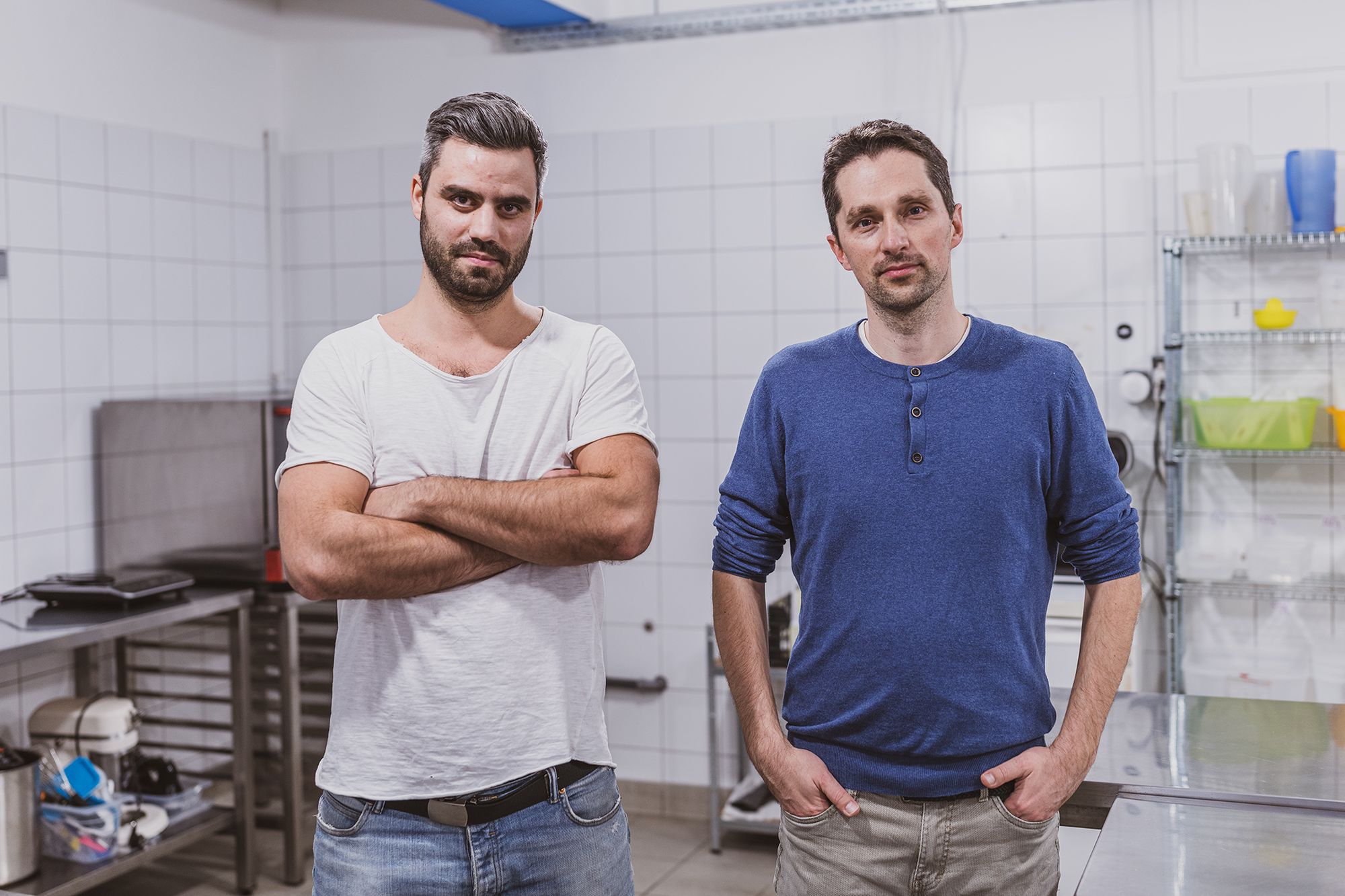
Mártogatós is exactly what its name suggests, and more: Gergő Prauda and Gergő Takács‘s business is not only about making various healthy sauces, cremes and dips. At the end of 2014, they were dreaming about a place where people can browse through the dips heartily. Eventually, in May 2015, they tested their vision in a pop-up format in ALAP cafe, and it seemed they did something very right. With Mártogatós, they added a new, fresh color to the Hungarian catering genre, and leaving the world of boring sandwiches, cold platters and the wine-pastry combo behind, they introduced a selection of tasty, healthy and good-looking snacks.
Today, catering has become their main profile, but to them, it means more than just events: we can order Mártogatós boxes to our homes and our workplaces, and they can also be the perfect choice if we are planning to do a picnic outdoors. Their selection includes dips, fresh, crunchy vegetables, whole wheat and rye sticks, snack sausages, fresh salads, artisan muesli bars, dessert creams and biscuits, complemented by a variety of cold pressed juices, artisan beers and wines. Sustainability plays a key role in their business, thus they use locally sourced ingredients whenever they can, they collect waste separately at events and they don’t use polystyrene containers.
Márta Serfőző – co-founder, Etesd! // owner, Serfőző Glutenfree Bakery
“Actually I started developing products for myself, and it has grown into a business by now. To my greatest joy, the first bite usually convinces even those who have no food intolerances but are simply conscious when it comes to eating.”
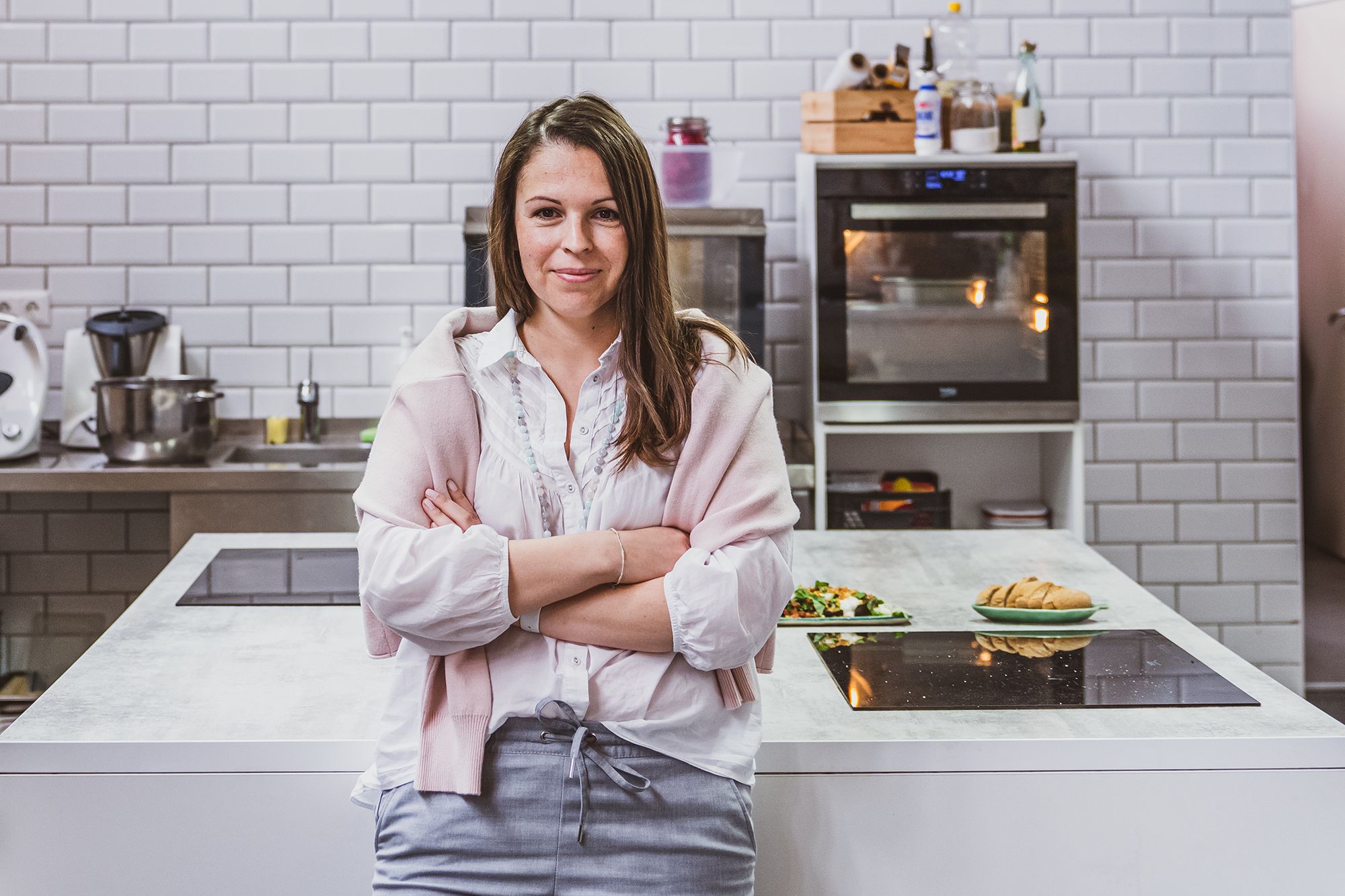
Breads made of premium quality gluten-free, organic and whole wheat flour as well as lactose and gluten-free desserts form the selection of Serfőző Glutenfree Bakery. Formerly a banker, Márti Serfőző, the founder of the bakery, found out she was gluten intolerant in 2013: after her diagnosis, she started looking for various alternatives but to her disappointment, she realized that there are hardly any gluten-free products on the market that can indeed provide the experience she was used to before. On account of her own intolerance, she started experimenting: one time, she entered a paleo pastry shop in the market in Fény utca, Budapest, where she mentioned to the owner that she herself made gluten-free pastries: this was the first shop (out of the very many) where Márti’s products became available.
Not long after, she rented a small bakery so that she could further develop her product palette. József Vajda, the owner of Pékműhely, also praised the breads, and Márti started looking for stores selling organic and reform foods to distribute her products—she never actually considered opening her own shop. The high-fiber bakery products low in carbohydrates are made by using ingredients sourced from organic farms: thus, the bejglis enjoying great popularity around Christmas are also strictly made with untreated organic lemons. In addition to building her own business, Márti organizes the campaigns of the national civil initiative Etesd! and is in charge of partner relationships.
Marcell Nagy and Marcell Erdős – founders, LegyenAz.
“We are not investors in the first place: we would rather like to make our dream come true. Our dream is to bring joy to people, this is what keeps us going.”
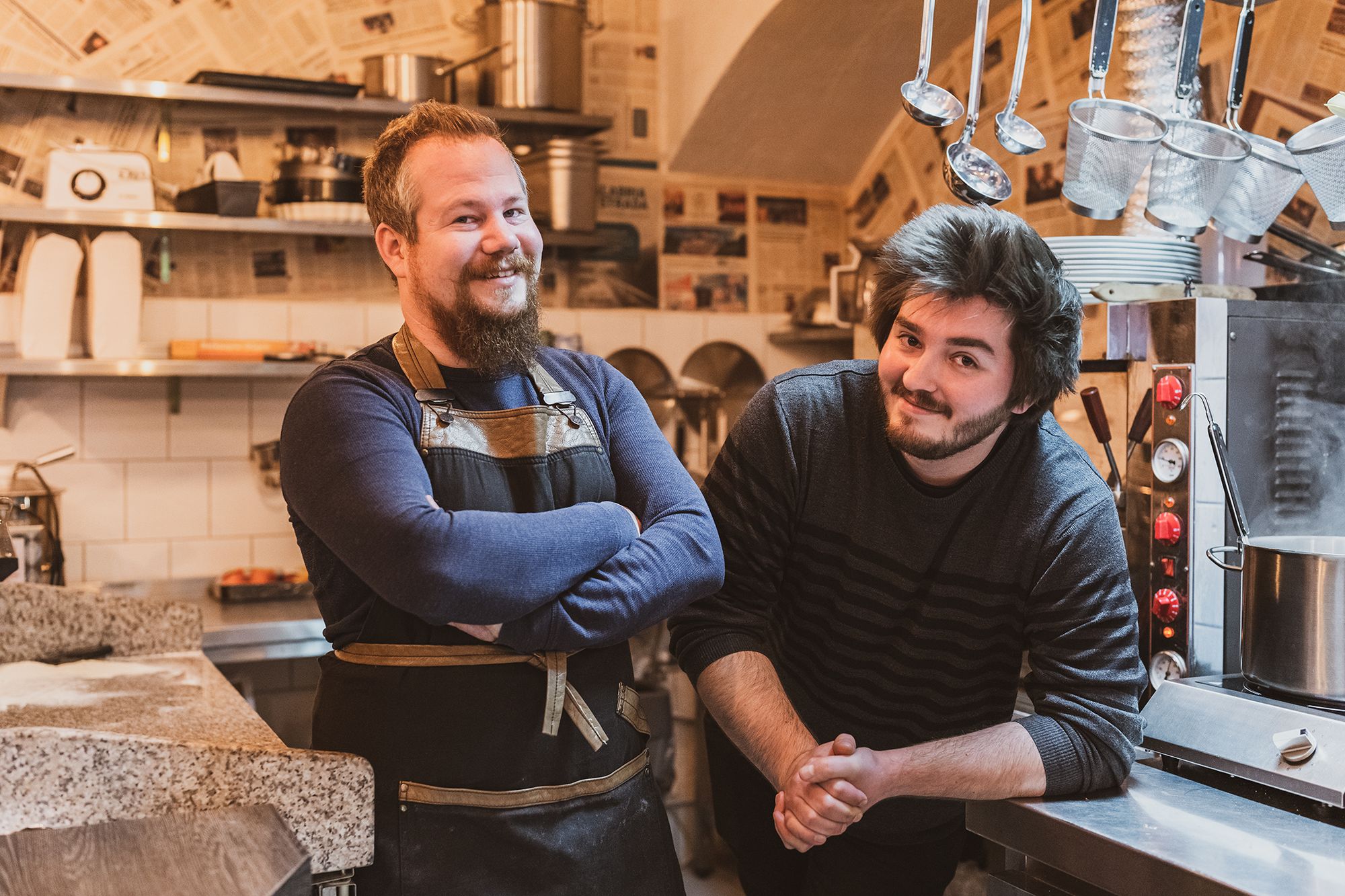
The two Marcells of LegyenAz., Marcell Nagy and Marcell Erdős, worked together in Double Shot café, where they soon realized how similarly they think when it comes to cooking. In February 2020, only one and a half months before the restrictions, they opened their own restaurant: they had to adjust to the changes in seconds, and they soon switched to delivery. The guys make pizzas, soups, pastas and a few complementary treats by building on Italian foundations simply, in a manner easily accessible and comprehensible to all. According to them, a catering establishment does not necessarily have to have a wide product range: it’s enough if they make the few things they are the best in decently. They are creative and keep renewing while offering a flavor experience that soon earned a core audience for them in Budapest’s Józsefváros.
Their regulars stick by them in the current situation, too, and for a good reason: the pizzas with a crunchy crust, locally made pastas and a great vibe is guaranteed even if right now we can only order takeout from them. Their menu features the inevitable Margherita, in their case with home-made basil pesto, and they not only offer vegan pizzas, but also vegan cashew, nutritional yeast and red pesto pasta. The minestrone, the Italian’s vegetable soup, is made with beans in their kitchen, and if you’re looking for a truly tasty Bolognese, you simply can’t go wrong with them.
Photography | Dávid Horpáczi
Video | Gergő Sepsi
Piqniq Budapest | Web | Facebook | Instagram
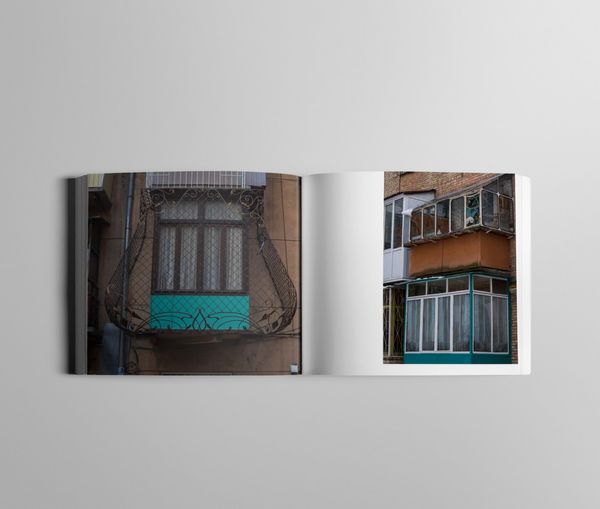
Show me your balcony, I'll tell you who you are | Balcony Chic

Light and airy gallery interior | Michal Motyčka










